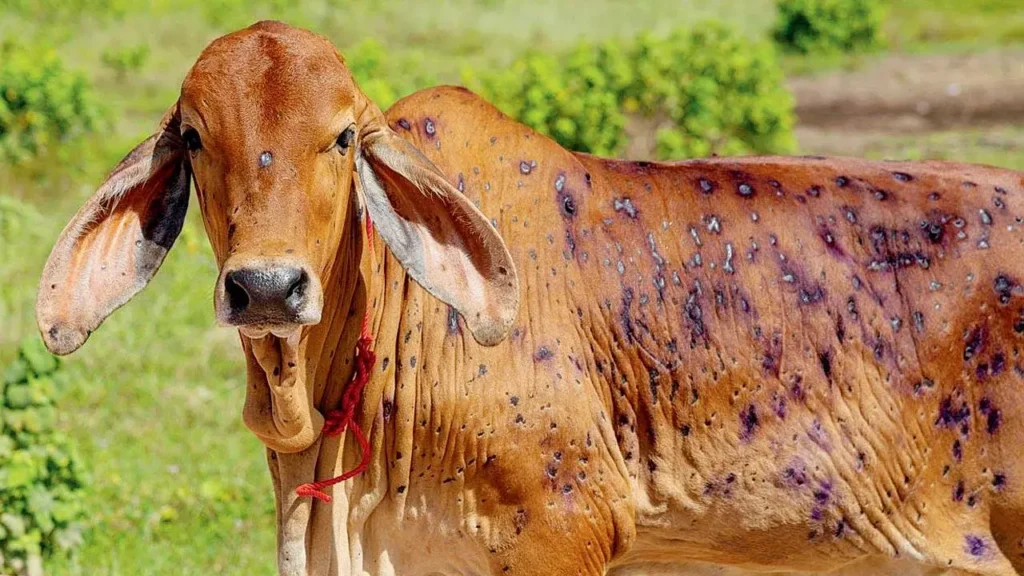Lumpy Skin Disease

Why in News?
Recently, the Punjab State government has airlifted 25 lakh doses of goat pox vaccine to carry out a free vaccination campaign for early prevention of cattle from lumpy skin disease.
- Lumpy Skin Disease(LSD) had affected the cattle on a large scale in July, 2022. About 1.75 lakh cattle were affected across the Punjab state and about 18,000 cattle died.
What is Lumpy Skin Disease?
- Causes:
- LSD is caused by infection with the Lumpy Skin Disease Virus (LSDV) in cattle or water buffalo.
- The Food and Agriculture Organization (FAO) estimates that its mortality rate is less than 10%.
- The first reported outbreak of LSD occurred in Zambia in 1929, and it was initially believed to be caused by poisoning or an allergic reaction to insect bites.
- LSD is caused by infection with the Lumpy Skin Disease Virus (LSDV) in cattle or water buffalo.
- Transmission:
- LSD is primarily spread between animals through the bite of vectors, such as mosquitoes and flies.
- Symptoms:
- The primary symptoms of LSD include fever, discharge from the eyes and nose, drooling, and blisters on the skin.
- Also, affected animals may also lose their appetite and have difficulty in eating, leading to reduced milk production.
- Prevention and Treatment:
- Currently, India is administering the goat pox vaccine and sheep pox virus vaccines for LSD.
- It’s a heterologous vaccine that offers cross-protection for cattle against the disease.
- Goat pox, sheep pox and LSD belong to the same capripoxvirus genus.
- It’s a heterologous vaccine that offers cross-protection for cattle against the disease.
- Lumpi-ProVacInd is a live attenuated vaccine developed jointly by ICAR’s National Research Centre on Equines and the Indian Veterinary Research Institute, which is targeted to protect cattle against the LSD virus, and provides 100% protection.
- It is expected to be commercially launched in a few months.
- There are no specific antiviral drugs for treating LSD, and treatment primarily involves supportive care for the affected animals.
- This may include treating skin lesions with wound care sprays,
- using antibiotics to prevent secondary infections,
- administering anti-inflammatory painkillers to increase appetite.
- Currently, India is administering the goat pox vaccine and sheep pox virus vaccines for LSD.
